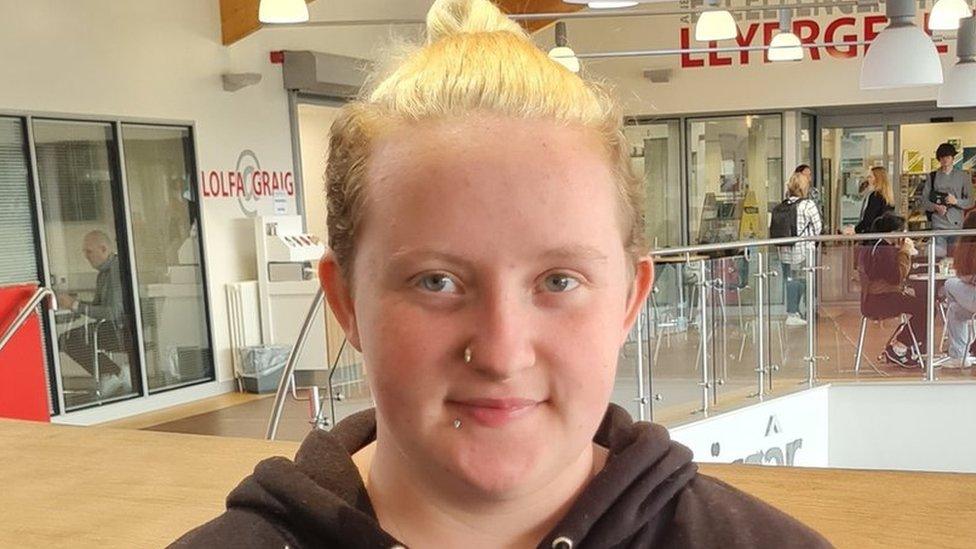Cost of living: Suffolk and Essex students share their struggles
- Published

University students are facing greater financial pressures than ever before
As the cost of living rises, university staff and students share the struggles being faced by young people and what help there is for them.

'You get much less for your money'
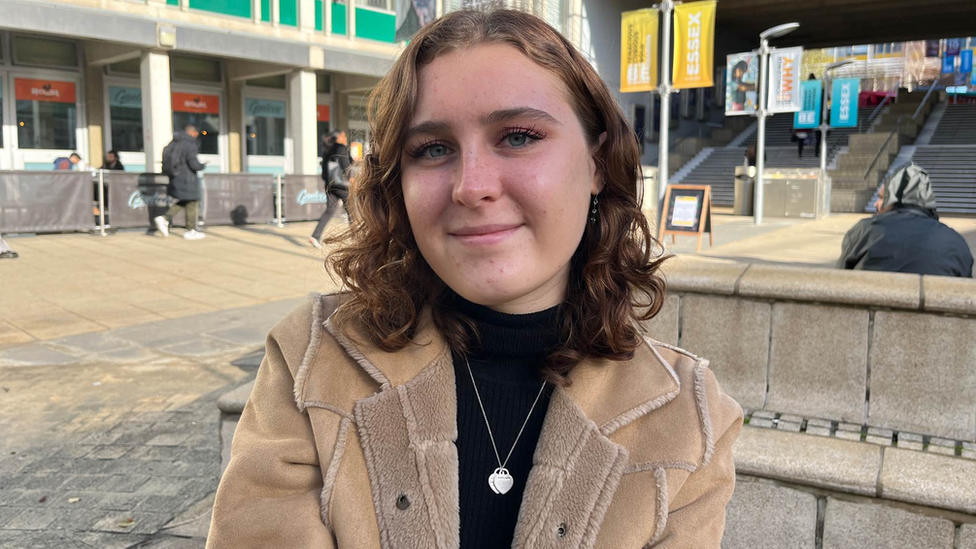
Eloise Churchman, who is studying at the University of Essex, says she has seen a "drastic" increase in the price of food and bills
It is not long into term time, but Eloise Churchman has already planned her Christmas holidays - to work most days to try to make ends meet.
"My maintenance doesn't even cover my accommodation, so I have to put around £300 towards it myself, so then food just comes out of my own money," says the University of Essex student.
"So I'm working most days during the Christmas holidays to try and get together the money I can for my food shopping and just enjoyment money as well to socialise, because that's obviously a very important part of keeping up good mental health."
The second-year multimedia journalism student, who lives on campus and comes from Bishop's Stortford in Hertfordshire, says she has seen a "drastic" increase in the price of food and bills from last year.
"The worry is that it's going to continue," she says. "You have to think carefully about if you can afford to go out for that cup of coffee or if you can afford to buy that textbook."
She says she also has to be careful when planning meals so she can "eat properly while on a budget".
"I freeze anything that I possibly can, I buy a lot of dry ingredients and if I buy fresh fruit and veg, I make sure that I definitely have a meal planned for it so it's not going to waste," she says.

'We need to break down barriers'
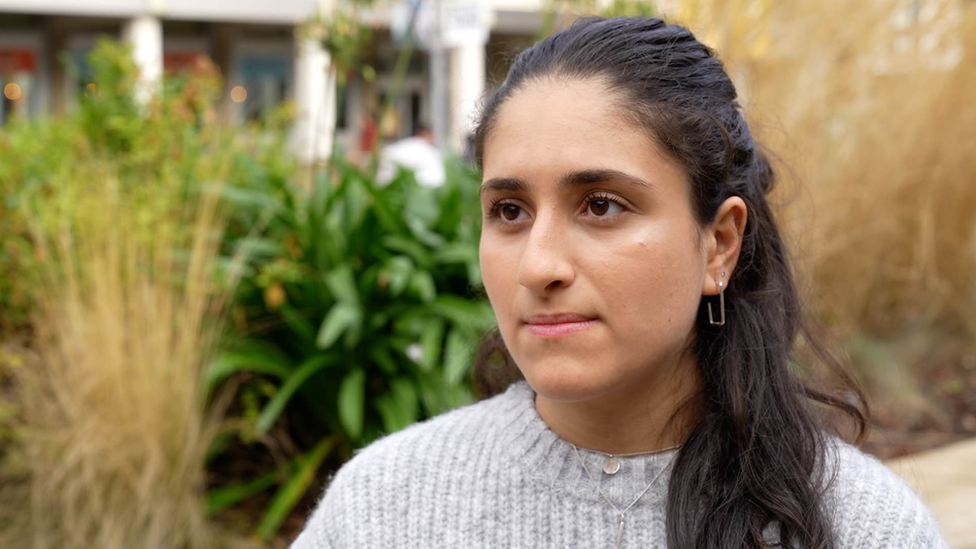
Nashwa Alsakka, president of the Students' Union at the University of Essex, urges students not to "suffer in silence"
"We know students that are currently holding two or three jobs where they simply cannot maintain living and the surviving, let alone having an experience," says Nashwa Alsakka.
The president of the Students' Union at the University of Essex says they are seeing students who are "literally going into a shop and having £5 and hoping that they will be able to make do for two or three days' worth of meals".
"I have a specific student who was budgeting for £20 a week for food, and in the situation that we're in where food is at a 15% inflation, how can he survive on £20 for food for one week? It's completely impossible," she says.
"It is not only about students having money to survive, but also how can a student who is having a sleepless night actually able to make money to survive and focus on their studies?"
Miss Alsakka says the university and union are doing "as much as we can", including providing subsidised meals and increasing the hardship fund.
But she is concerned about students who might be "suffering in silence".

'Not enough time to make money and study'
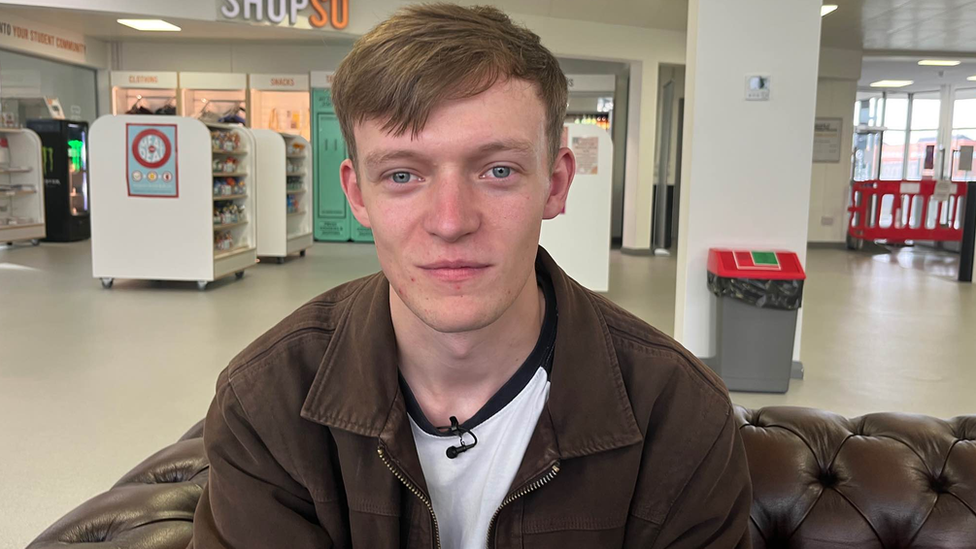
Alex Gooch, from the Students' Union at the University of Suffolk, says there has been a lot of "determination" in tough times
At the University of Suffolk, the Students' Union paints a similar picture.
"There's just not enough money to be able to socialise, to be able to buy new clothes, to be able to buy books. People are having to sacrifice and take up additional jobs," says Alex Gooch, the unions' president of education.
"But there's not enough time in the day to make money and study."
He says it is "not easy" for any of the students and the union is trying to cater for a "wide array" with initiatives supported by the university through funding.
"We're making parking free, we're putting on free lunch bags, which go every day, we're putting on free teas and coffees, taking a hit from our own services because students can't afford to have these luxuries," he says.
He says even though times are tough, they are seeing "quite a lot of determination and positivity".
"People are coming together and uniting to work together and volunteer hours, people are donating clothes so that people can give them to their children and for themselves," he adds.

'Students don't like saying they need help'
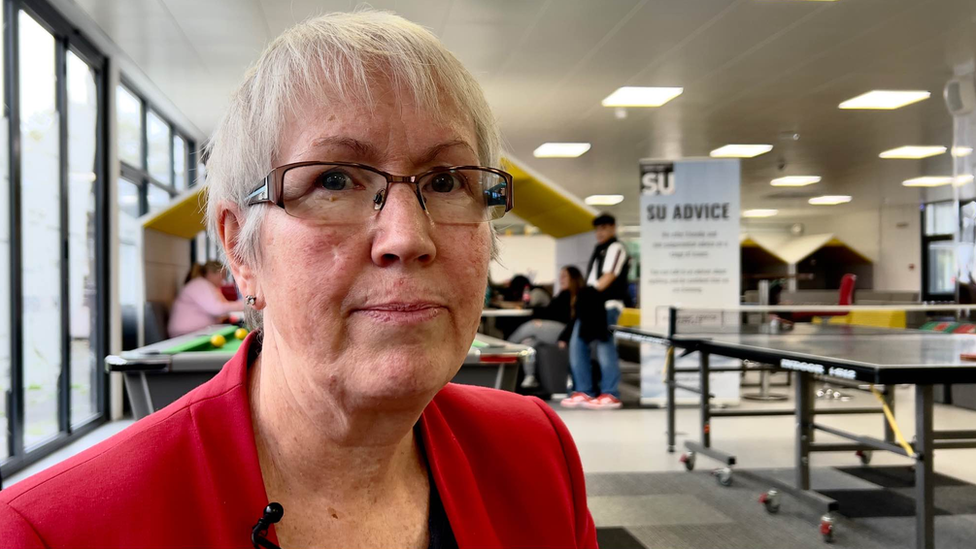
Prof Helen Langton, from the University of Suffolk, says students are too proud to ask for help
At the Ipswich-based university, many of the students have "complex lives", says chief executive Prof Helen Langton.
She says 75% of their students are mature, meaning they are aged over 24, 65% are women and 75% do not live on campus or in Ipswich so they are commuter students.
"They come in for their session and they go home. They already have jobs before they come here, they have families, they have older parents they're looking after," she says.
"We find that the students don't like saying they need help. It's a pride thing, it's a mature [thing], 'I'm trying to be all things to all people'."
Prof Langton, who is also vice-chancellor, says they are encouraging students to admit they need help.
"We launched the Suffolk Community Foundation Winter Hardship Fund here at the university last week," she says.
"There are funds available. We just need to help students work out where to go."
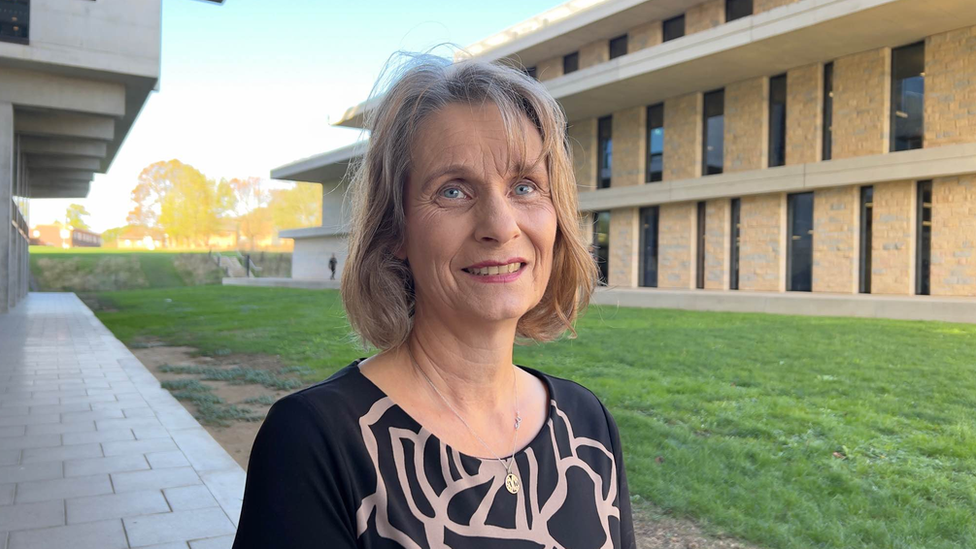
Prof Madeleine Eacott, from the University of Essex, says they want students to talk to them
Meanwhile, at the University of Essex, "practical help" has been put in place, says Prof Madeleine Eacott, pro-vice-chancellor of education.
This includes subsidised meals and the hardship fund has been trebled from last year to £1.5m, she says.
"We have increased the range of things that our students can apply for this fund, so it might include travel costs, course costs, help with child care, a huge range of things," adds Prof Eacott.
"What we say to our students is that we know all your needs are different, so do talk to us if you are struggling and we can see how we can support you."
She says the university has frozen rents for those living on its Southend campus and at the Colchester campus it has limited the increase "to much less than inflation so in real terms that is a decrease".
"We really want to support our students to succeed with her studies, despite the fact, these are tough times," she says.



Find BBC News: East of England on Facebook, external, Instagram, external and Twitter, external. If you have a story suggestion email eastofenglandnews@bbc.co.uk, external
- Published2 November 2022
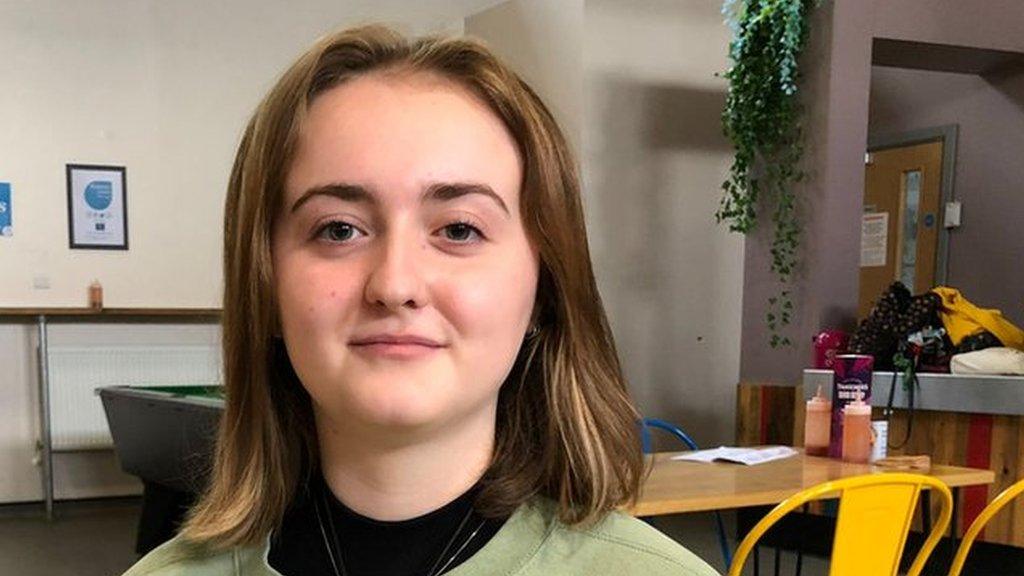
- Published2 November 2022
